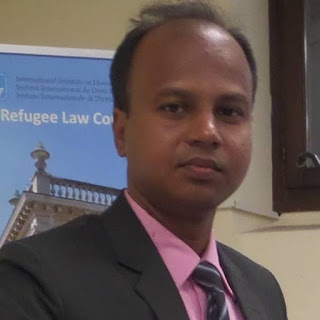On Monday, April 22, 2024, Radia Teherin Utsha, a 19-year-old transgender model, tragically ended her life by jumping from the sixth-floor roof of Byatikram Mahila Hostel in Mirpur, Dhaka. Radia, a student in the honors first year at Mirpur Bangla College, took this drastic step.
The recent suicides of transgender individuals in Bangladesh, including Radia Tehrin Uthso who tragically took her own life, serve as stark reminders of the urgent need for societal change. These heartbreaking losses highlight the profound challenges faced by transgender people in our country, challenges that demand immediate attention and decisive action from all sectors of society.
The young woman was seriously injured after leaping from the female hostel located at Mahua Manzil, Mirpur-10. Despite efforts to save her, Radia succumbed to her injuries at the emergency department of Shaheed Suhrawardy Hospital. It has been revealed that Radia had been concealing her transgender identity during her six-month stay at the hostel.
Prior to her tragic act, Radia left a distressing message on Facebook, indicating her intentions to end her life. In her final status update, she wrote, "Tonight I am going to kill myself. I tried hard to delete my social media accounts but I couldn't. I unlocked all my phones. Please delete all my accounts if someone gets my phone."
Hailing from Jamalpur's Bakshiganj Upazila, Radia, despite facing numerous challenges, pursued her dreams of modeling alongside her academic endeavors. She achieved a significant milestone by becoming the first transgender woman to receive a 'yes' card at the Miss Evergreen beauty pageant in 2023.
However, fame came with its share of hardships for Radia. Following her success in the beauty pageant, she became a target of relentless bullying and trolling. Her parents' rejection forced her out of her home, and she faced public harassment in her native village for expressing her true identity. Additionally, Radia was subjected to further torment by some individuals within the transgender community in Dhaka.
The struggles continued as Radia encountered serious housing issues in Dhaka. She endured the trauma of sexual assault while residing in a male hostel and was subsequently expelled when attempting to seek refuge in a female hostel.
The circumstances leading to these suicides paint a harrowing picture of the daily reality for transgender individuals in Bangladesh. Discrimination, harassment, and violence are all too common, forcing transgender people to navigate a hostile world that denies them their basic rights and dignity.
Radia's story, shared through social media posts before her untimely death, serves as a haunting testimony to the profound suffering endured by transgender individuals in our society.
As a nation, we cannot afford to ignore the plight of transgender people any longer. It is incumbent upon us all—government, civil society, religious leaders, and citizens—to come together and address the root causes of transgender discrimination and violence.
This requires a multi-faceted approach that includes legal reforms, education and awareness campaigns, and community-based support services.
First and foremost, the government must enact and enforce laws that protect the rights of transgender individuals and ensure their equal treatment under the law.
Legislation is needed to prevent discrimination in employment, housing, healthcare, and education, as well as measures to address hate crimes and violence against transgender people.
Furthermore, comprehensive education and awareness programs are essential to challenging the stigma and prejudice that fuel transgender discrimination and violence. Schools, universities, and community organizations must integrate LGBTQ+ inclusive curricula and initiatives that promote acceptance and understanding of gender diversity.
Equally important is the need for community-based support services that provide transgender individuals with the resources and support they need to thrive. This includes access to mental health services, crisis intervention, housing assistance, and legal advocacy.
Ultimately, ending the tragedy of transgender suicides in Bangladesh requires a collective commitment to building a more just and inclusive society. It requires us to confront our own biases and prejudices, and to stand in solidarity with transgender individuals in their struggle for equality and dignity.
The deaths of Radia Tehrin Uthso are a sobering reminder of the human cost of prejudice and discrimination. Let us honor their memory by redoubling our efforts to create a society where all people are treated with respect and dignity, regardless of their gender identity. The time for action is now.

No comments:
Post a Comment